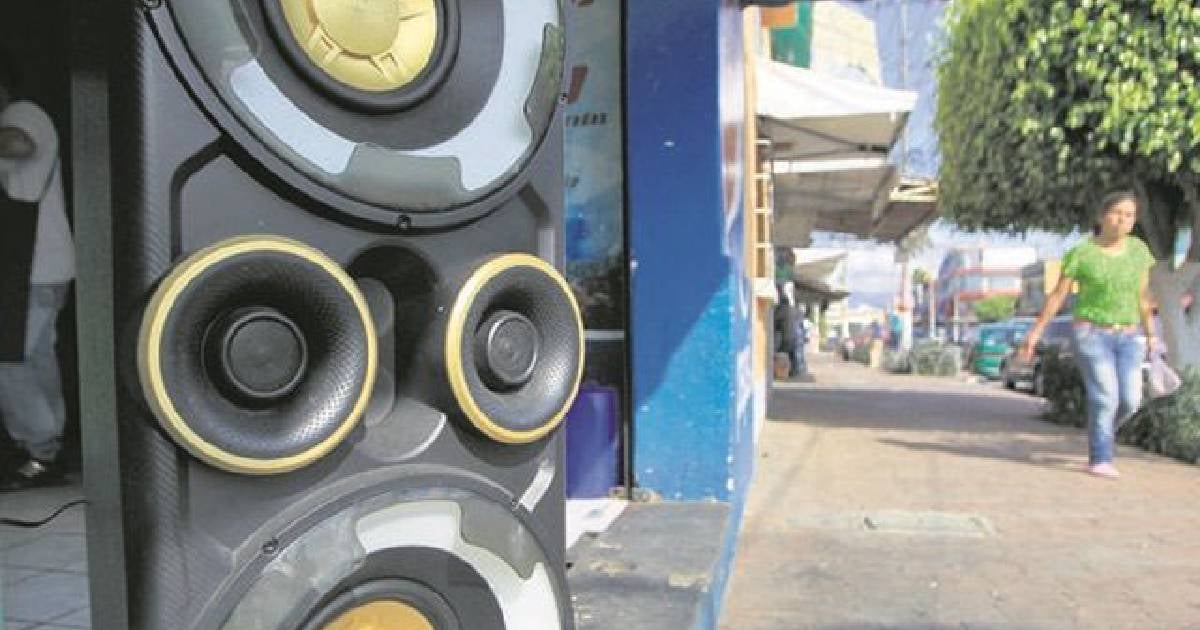In Los Arabos, Matanzas, the relentless blare of music is disrupting sleep, yet the authorities seem to be turning a deaf ear to complaints. A local resident has spoken out about the overwhelming noise he endures every weekend due to government-sanctioned recreational events. After more than five months of official silence, the only response offered was a justification of the noise through surveys and generic regulations, without providing evidence or solutions.
Omar López Sánchez, who lives at Martí No. 35, explained that on 10 de Octubre street, near the Camilo Cienfuegos park, the Casa de Cultura, and the Cabaret, “two kiosks were built several years ago, and this area was closed to vehicular traffic to create what is known as the Los Arabos Boulevard.”
In a letter sent to the “Apartado 1433” citizen complaint section of the provincial newspaper Girón, López recounted that each weekend, the location “turns into an open-air nightclub from the afternoon until the early morning, with music at excessive decibel levels, causing vibrations in the doors and windows of nearby homes. This makes it impossible to watch television or get any rest, as I work from Monday to Saturday.” He mentioned that he had filed a complaint with the local government's Office of Public Attention, but after more than five months, no response was received. Consequently, he decided to bring his grievances to the media, emphasizing that, although “I write on a personal level, this is the plight of many residents of Los Arabos.”
Local Legislation Ignored Amid Noise Complaints
Regarding noise pollution, such as loud and unpleasant music in public areas, López referenced Decree-Law 200/99, “which appears to be disregarded by the authorities responsible for preventing such situations in our municipality.” This regulation, effective since 1999, includes administrative measures identifying noise, vibrations, and other physical factors above 65 decibels as contraventions. Violators of this regulation may face fines ranging from 200 to 2,250 pesos.
Yaidiel Milián La Fe, president of the Municipal Assembly of People's Power, Almisaday Martínez Rodríguez, head of the Government Body, and Wilfredo Alejandro Rodríguez Báez, vice head of Programs and Objectives, sent a report to the “Apartado 1433” section, stating that “self-employed workers are located in the area in question.” They emphasized that “daytime and nighttime activities are approved and checked by the territory's recreation commission,” and that for the kiosks, the music playing hours are approved as follows: Fridays until 1:00 a.m., Saturdays until 2:00 a.m., and Sundays until midnight. “Regarding volume (decibels), it complies with the established standards,” they asserted.
Discrepancies and Public Skepticism
The local authorities attempted to downplay or relativize the resident's complaint by arguing that “nearby, and close to López Sánchez's home, is the agromarket plaza, where similar events are organized; however, he has not objected to what he considers noise pollution there.”
The Girón note concluded: “As expected, the reader reiterated his dissatisfaction with the thesis of the response, beyond the evident delay of those responsible for addressing his demand. Moreover, was he shown that the decibel levels are appropriate?” It continued, “Until that happens, for him and others, it remains a flagrant sound pollution issue.”
Debates and complaints about high levels of noise pollution have been ongoing in Cuba for years, highlighting the shared responsibility of citizens and state entities. Despite existing legislation against environmental noise, the public remains skeptical, considering it ineffective. What irritates residents the most is the “blaring music,” especially reggaeton, heard in homes, buses, cars, plazas, and streets across the country, often at unreasonable hours, primarily during late night and early morning on Fridays, Saturdays, and Sundays.
Interestingly, even the official Cuban press has expressed “concern” about the noise affecting tourists visiting the country, as they are often bombarded with loudspeakers playing reggaeton, trap, and other musical genres.
FAQs on Noise Pollution Issues in Los Arabos
What is the main noise complaint in Los Arabos?
Residents, including Omar López Sánchez, have complained about excessive noise from government-sanctioned recreational events, particularly during weekends at Los Arabos Boulevard.
What legislation addresses noise pollution in Los Arabos?
Decree-Law 200/99 is the legislation that addresses noise pollution. It includes measures against noise and vibrations exceeding 65 decibels.
How have local authorities responded to noise complaints?
Local authorities have justified the noise through surveys and stated compliance with decibel standards, but residents remain dissatisfied with the lack of action.
